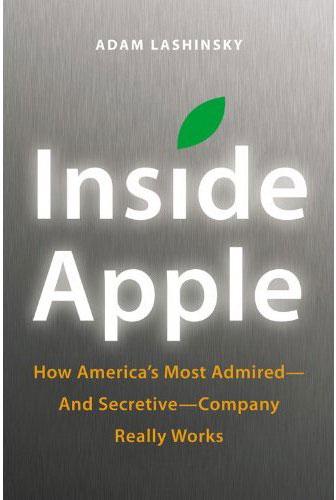'Cultish' secrecy, 'iBuddy' system & paid lunches all part of Apple's HQ
The details come from the new book "Inside Apple" by Fortune writer Adam Lashinsky, which will go on sale Jan. 25. An excerpt from the book was published on Wednesday, offering readers a taste of what the title will offer.
Lashinsky's take details Apple's well-known obsession with privacy, which he describes as a "cultish" atmosphere at the company's Cupertino, Calif., headquarters. New employees initially encounter this on their first day, when they attend a half-day of orientation always on a Monday, unless Monday is a holiday.
That first day is often when new employees learn what their actual job will be. New workers are often hired into "dummy positions," and employees don't learn the details of their job until after they join Apple.
Still other employees do know what they were hired to work on, but they can't tell anyone else. That complicates icebreaking sessions with other new hires, as some don't know with absolute certainty what they were hired to do, and others are simply not allowed to say.
That secrecy and paranoia even extends outside of Apple's campus. Employees jokingly refer to a nearby restaurant, BJ's Restaurant & Brewhouse, as "IL-7," or "Infinite Loop 7," a building that doesn't exist.
"Company lore holds that plainclothes Apple security agents lurk near the bar at BJ's and that employees have been fired for loose talk there," Lashinsky wrote. "It doesn't matter if the yarn is true or apocryphal. The fact that employees repeat it serves the purpose."
Sources who contributed details to the book said that Apple's corporate culture isn't particularly nice, nor is it relaxed. One anonymous person said that fighting between employees "can get personal and ugly."
The culture at Apple is described as "the polar opposite of Google's," and one small but noteworthy difference between the two rival companies lies in lunch. Unlike at Google, where lunch is free, Apple employees must pay for their "quite good and reasonably priced" lunch at the company cafeteria. There is one exception: New employees are given free lunch during their first-day orientation.
New employees can also gain a helping hand with Apple's informal "iBuddy" system, where they're paired up with an existing employee outside of their primary team. The new hire can have their integration into Apple eased having a person who can answer questions.
"Many have said they met with their iBuddy once or twice at the beginning of their tenure — before they became too busy to meet again," the book reads.
Other details from Lashinsky's book include claims that Apple's iOS chief, Scott Forstall, is viewed as the company's "CEO-in-waiting, while the head of Internet software, Eddy Cue, is portrayed as a "dealmaker" crucial to the company's negotiations with outside partners like content providers and wireless carriers. "Inside Apple: How America's Most Admired — and Secretive — Company Really Works" is available for preorder from Amazon in hardcover, as well as a digital Kindle edition and an unabridged audiobook.
 AppleInsider Staff
AppleInsider Staff











 Malcolm Owen
Malcolm Owen
 William Gallagher
William Gallagher
 Christine McKee
Christine McKee
 Michael Stroup
Michael Stroup
 William Gallagher and Mike Wuerthele
William Gallagher and Mike Wuerthele


 Chip Loder
Chip Loder






